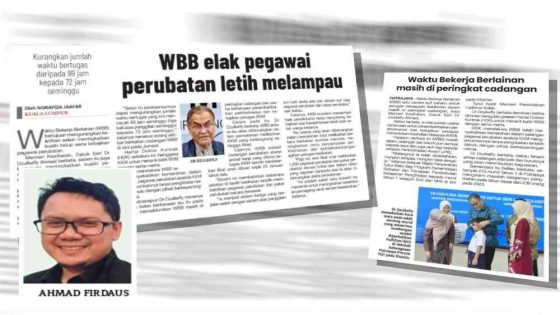On January 19, 2025, the discussion surrounding the new Working Hours System for healthcare staff in Malaysia has sparked significant interest. How can we better support our healthcare professionals? Experts argue that evaluating their workload solely based on hours worked is misleading.
- New shift system for healthcare workers proposed
- Workload not measured by working hours
- Circadian rhythm affects healthcare staff performance
- WBB aims to reduce on-call hours
- Need for a special commission for healthcare workers
- Addressing retention of healthcare professionals needed
Understanding the Unique Workload of Healthcare Staff in Malaysia
Why is it crucial to rethink how we measure healthcare workers’ workloads? The current system often overlooks the demanding nature of their jobs, especially in emergency departments. Experts advocate for a new shift system that aligns better with human circadian rhythms, aiming to enhance both staff welfare and patient care.
Proposed Changes to Improve Healthcare Working Conditions
Recent proposals suggest implementing a new Working Hours System (WBB) for healthcare staff. This system aims to reduce on-call hours from 33 to 18, ensuring that no medical officer works continuously for more than 24 hours. Such changes are vital for maintaining a healthy work-life balance.
Key Benefits of the New Working Hours System
Implementing the WBB could lead to several significant improvements:
- Reduced fatigue among healthcare workers.
- Improved quality of life for medical staff.
- Better patient care due to more rested professionals.
- Enhanced job satisfaction and retention rates in the healthcare sector.
Addressing the Needs of Healthcare Professionals
Healthcare professionals face unique challenges that require tailored solutions. With a growing number of staff leaving for better opportunities, it is essential to create an environment that values their contributions. Establishing a special commission to address these issues could be a step in the right direction.
Conclusion: A Call for Action
As discussions continue, it is clear that the well-being of healthcare workers must be prioritized. By adopting a more thoughtful approach to working hours, we can ensure that these essential workers receive the support they need to thrive.































